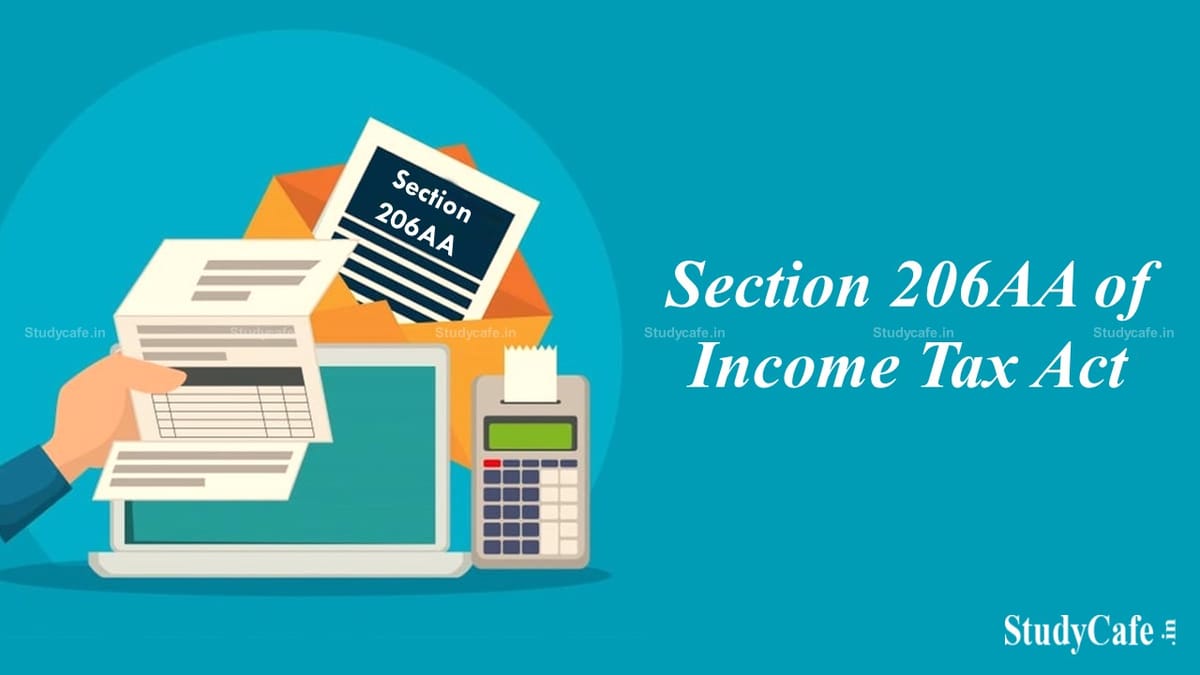Deepshikha | Mar 7, 2022 |

Section 206AA of Income Tax Act
Many transactions or payments involving two taxpayers require the deduction of tax deducted at source (TDS) at the appropriate rate under several laws. The threshold limit and criteria are also prescribed in each relevant section affecting TDS rates. The most important condition imposed by the Income Tax Act of 1961 is that the payer provide his or her PAN. This is because if the payer does not have a PAN, the tax will be deducted at a higher rate. Furthermore, the TDS deduction will not be shown in the payee’s name or on his or her Form 26AS. The payee causes a headache for the payer, the payee, and the Income Tax Department just by failing to quote the PAN. This is why the Income Tax Act of 1961, Section 206AA, contains rigorous regulations requiring the payee to quote his or her PAN to the income taxpayer.
Any taxpayer who is entitled to receive any amount subject to TDS must provide his or her PAN to the taxpayer who is liable for paying the amount. If they fail to quote their PAN, TDS would be deducted at a higher rate. The provisions of Section 206AA apply to both resident and non-resident taxpayers.
If the payee fails to provide the payer with his or her PAN, the payer will deduct TDS at the rates listed below:
The rates are different if the payer is paying any amount that is covered by sections 194O and/or 194Q. TDS is deducted from payments made to an E-commerce participant under Section 194O. Section 194Q allows for the deduction of tax at the source when a particular amount is paid for goods. As a result, the following rate will apply:
The Income Tax Act of 1961, Section 206AA, does not apply to two categories of transactions. To begin with, it does not apply to non-resident taxpayers who receive interest income from long-term bonds covered under section 194LC.
It also does not apply to payments such as interest, royalties, fees for technical services, or payments on the transfer of any capital asset. A non-corporate non-resident or a foreign firm without a PAN is the recipient of such payment. The payee taxpayer, on the other hand, must provide the payer with the following information. These terms are outlined in Rule 37BC, as amended by Notification No. 53/2016.
TDS deductions are reduced or eliminated under Section 197. TDS deductions can be reduced or eliminated by applying section 197. The assessing officer issues a certificate allowing TDS to be deducted at defined rates for a set period. The certificate issued under section 197 is void if the taxpayer fails to include his or her PAN when applying, according to section 206AA. Section 206AA and standard TDS rates will apply if the certificate becomes invalid due to an erroneous PAN or expiration date. In this instance, there is no benefit of a decreased or zero TDS deduction.
In case of any Doubt regarding Membership you can mail us at contact@studycafe.in
Join Studycafe's WhatsApp Group or Telegram Channel for Latest Updates on Government Job, Sarkari Naukri, Private Jobs, Income Tax, GST, Companies Act, Judgements and CA, CS, ICWA, and MUCH MORE!"